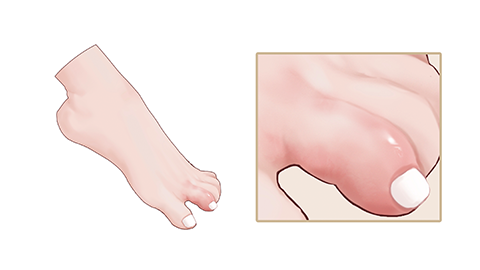How does hypothyroidism cause leg swelling?
Generally, leg swelling caused by hypothyroidism may be due to slowed interstitial fluid circulation, impaired lymphatic return, insufficient thyroid hormone secretion, autoimmune factors, medication effects, and other reasons. If discomfort symptoms occur, it is recommended to seek timely medical consultation and treatment at a reputable hospital. Detailed analysis is as follows:
1. Slowed Interstitial Fluid Circulation
Hypothyroidism reduces the body's metabolic rate, leading to slower circulation of interstitial fluid. Fluids may accumulate in the leg tissue spaces, causing leg swelling. Regular mild physical activity, such as walking or yoga, can help improve leg blood circulation and reduce swelling.
2. Impaired Lymphatic Return
Slowed metabolism can affect the normal function of the lymphatic system, leading to obstructed lymphatic drainage and fluid accumulation in the legs, resulting in leg swelling. Applying warm compresses to the legs may help improve lymphatic circulation and alleviate swelling.

3. Insufficient Thyroid Hormone Secretion
Hypothyroidism leads to reduced thyroid hormone secretion, which affects the kidney's ability to excrete water and sodium, resulting in fluid retention in the body and fluid accumulation in the legs, causing leg swelling. Thyroid hormone replacement therapy, such as levothyroxine sodium tablets or thyroid extract tablets, can be used under medical guidance to improve symptoms.
4. Autoimmune Factors
Some cases of hypothyroidism are caused by autoimmune diseases. Autoantibodies may damage vascular endothelial function, increasing vascular permeability, allowing fluid to leak into leg tissues, causing leg swelling. Immune-modulating medications such as prednisone tablets, methylprednisolone tablets, or dexamethasone tablets may be used under medical supervision to regulate the immune response and alleviate symptoms.
5. Medication Effects
Certain medications used to treat other conditions may interact with hypothyroidism, affecting the body's water and fluid metabolism, leading to leg swelling. If leg swelling is related to medication use, inform your doctor promptly, and adjust or change the medication regimen under medical guidance.
In daily life, it is important to maintain a low-salt diet to reduce fluid and sodium retention; avoid prolonged standing or sitting, and engage in appropriate leg movement; keep legs warm to avoid cold exposure; and undergo regular thyroid function check-ups, adjusting treatment plans according to test results.








